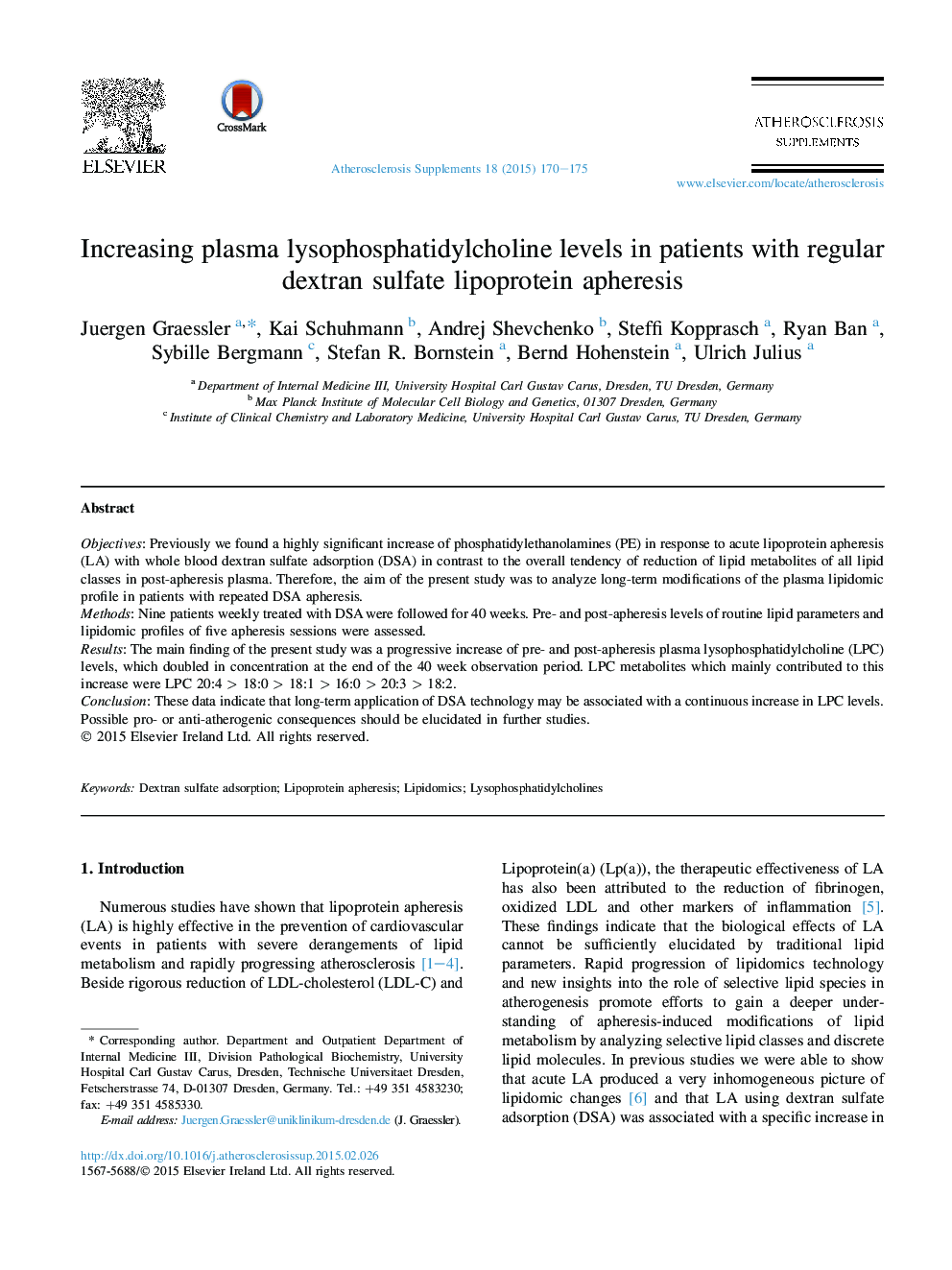| Article ID | Journal | Published Year | Pages | File Type |
|---|---|---|---|---|
| 2895468 | Atherosclerosis Supplements | 2015 | 6 Pages |
ObjectivesPreviously we found a highly significant increase of phosphatidylethanolamines (PE) in response to acute lipoprotein apheresis (LA) with whole blood dextran sulfate adsorption (DSA) in contrast to the overall tendency of reduction of lipid metabolites of all lipid classes in post-apheresis plasma. Therefore, the aim of the present study was to analyze long-term modifications of the plasma lipidomic profile in patients with repeated DSA apheresis.MethodsNine patients weekly treated with DSA were followed for 40 weeks. Pre- and post-apheresis levels of routine lipid parameters and lipidomic profiles of five apheresis sessions were assessed.ResultsThe main finding of the present study was a progressive increase of pre- and post-apheresis plasma lysophosphatidylcholine (LPC) levels, which doubled in concentration at the end of the 40 week observation period. LPC metabolites which mainly contributed to this increase were LPC 20:4 > 18:0 > 18:1 > 16:0 > 20:3 > 18:2.ConclusionThese data indicate that long-term application of DSA technology may be associated with a continuous increase in LPC levels. Possible pro- or anti-atherogenic consequences should be elucidated in further studies.
